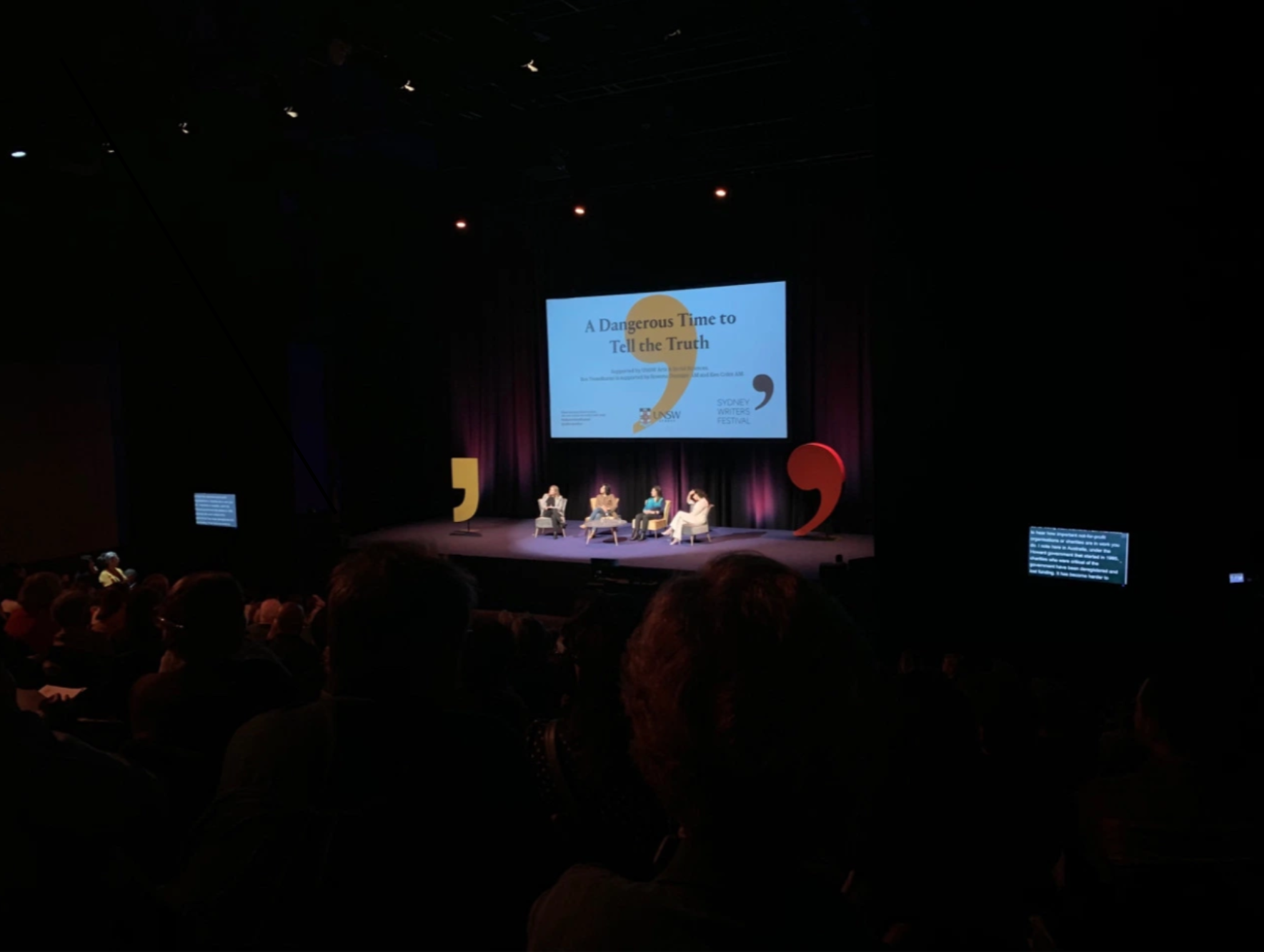A DANGEROUS TIME TO TELL THE TRUTH — SYDNEY WRITERS’ FESTIVAL
“There are two types of people. The one who runs towards the bomb when there is an explosion, and the one who runs away from the bomb,” said Turkish novelist Ece Temelkuran at a recent session of the Sydney Writer’s Festival.
“Don’t do that. It’s some sort of insanity,” she said.
"I think journalism is not a profession anyways, just a sickness in the head,” Temelkuran continued, referring to herself and fellow colleagues onstage.
ABC’s former Middle East correspondent Sophie McNeil led the appropriately titled panel discussion, a Dangerous Time to Tell the Truth, voicing her solidarity.
“It’s an addiction. It’s definitely an addiction,” she nodded.
The energy in the room was palpable in Stall 9 of the Carriageworks building, as the three speakers lined the dimly lit stage, each with their own distinctive flare.
Poet and journalist at the Baghdad Observer before being forced to flee Iraq Dunya Mikhail, and investigative journalist from Mexico Anabel Hernandez, joined the other two women to discuss the “extraordinary personal price for exposing lies and reporting the truth in their homeland and other parts of the world.”
“In terms of journalism and telling the truth, it always had a price,” Temelkuran mused.
“It’s not only crazy countries like Mexico, Iraq and Turkey that go through this,” she said.
“Obviously, no journalist is killed in Australia, but this doesn’t mean that they are allowed to speak or write about anything… We are going through some sort of crisis with democracy, where telling the truth is not only dangerous, but it is also not fashionable.”
Anabel Hernandez could not sit still, her rage met with applause. Shifting explosively from cross legged, to legs sprawled out wide, her voice rose to impassioned shouts.
“The truth is one of the most important values in every society. Not just in Mexico. In every country, in every family, in every life, the truth is key to being able to know where we are going, and what is going on,” she said, wildly gesticulating as she spoke.
“I was able to reveal all the names… even the president that was involved with the cartel… the federal police that raped and tortured the people. They are not in jail, it’s true. But the truth is known. And this is a kind of justice. The justice that gives the truth is sometimes more powerful than any other.”
Murmurs seeped throughout the crowd, pulling the tension taught.
Mikhail’s poetic nature quietly contrasted to the other two women, as she “noticed that censorship in America didn’t have room on the ground [like Iraq], but it was in the air,” she said, changing the tone in the room.
Her words were softer, but just as weighty.
“I felt it every time. I felt that people there didn’t need censors. Their speech was restricted to what is acceptable already.”
“I feel like telling all of you, protect your journalists, even if you hate them, because we are not very loveable people,” Temelkuran said, eliciting waves of laughter from the audience.
"No, seriously,” she said. “The job is to tell the things that nobody wants to hear.”
While dubbed, A Dangerous Time to Tell the Truth, none of these three women shied away from peril, so perhaps this session warrants an even more appropriate title, as one audience member so aptly suggested.
“Why do you say it is a dangerous time to tell the truth?” the audience member asked during question time.
“I think it’s better that we say, it is the right time to tell the truth.”
